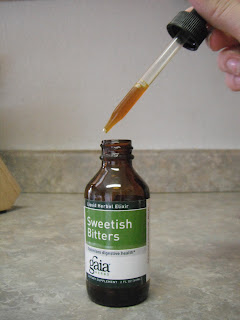With summer time approaching, the joy of the outdoors is upon us. Camping and hiking are just a few of the outdoor activities that I cannot live without. What I can live without are the mosquitoes that accompany the outdoor adventures. When I get bit by a mosquito my body has an allergic reaction to them. The bites swell up to the size of at least a golf ball, sometimes bigger and they itch and ache so bad. So for me it is imperative that I have a safe and effective bug repellent with me on my outdoor adventures.
N-N-Diethyl-3-methylbenzamide, more commonly known as DEET, is the main ingredient in most commercial insect repellents. Many government agencies deem DEET safe; however, because compounds applies to the skin are readily absorbed into the bloodstream, DEET may not be as safe as we think. Once in the body, DEET affects the nervous system and can cause long term effects including seizures and death. One study done in rats showed that long term use of DEET killed brain cells. DEET isn’t the only pesticide in bug sprays. They are often a chemical cocktail of toxicity .These chemical bug repellents are especially toxic to the sensitive developing bodies of children. So why take the risk when there are other alternatives?
The next question is “what are effective alternatives?” I’ve tried many options from store bought natural bug sprays to homemade ones, some working better than others. But what I’ve found to work the best is a homemade mixture including many essential oils. Bugs don’t like the smell of these essential oils and I will admit some smell better than others. Useful essential oils include: Lemon, Lemongrass, Clove bud, Cinnamon, Eucalyptus, Citronella, Orange, Rose Geranium, Lavender, Rosemary and Catnip. I find Catnip essential oil to be the most effective at repelling mosquitoes; however it is very expensive! To remedy this I make a tincture of catnip using 90-100% alcohol. At this strength the alcohol is able to pull out some of the essential oils. The base that I use is witch hazel extract. If the bugs do manage to make their way through the haze of essential oils that I spray on myself, the witch hazel extract helps to tame the itch and the inflammation. Here is the recipe I use:
· 4oz of witch hazel extract
· 90 drops of citronella essential oil
· 80 drops of eucalyptus essential oil
· 40 drops of lavender essential oil
· 30 drops of rosemary essential oil
· 20 drops of clove bud essential oil
· 10-15 drops of both lemon and lemongrass essential oil
· 4oz of catnip tincture
Combine all ingredients in a spray bottle. I prefer to use many small glass spray bottles because the essential oils can eat away at plastic containers and the small ones are easy to store in your purse or backpack. Shake well before using. If you are missing some of the essential oils, substitute for others named above or just leave them out and increase the amount of other oils. Make sure that you use at least 4 different essential oils and be sure that citronella is one of them. Purchasing all of the essential oils can be expensive, but they will last a long time if you store them in a cool, dry place out of sunlight.
A few other tips:
Mosquitoes are attracted to dark colors, so stick to brighter colors
Mosquitoes are attracted to an increase in carbon dioxide and lactic acid – so be careful when you are exercising outside
Mosquitoes like fruity and floral fragrances so be aware of the kind of soap, shampoo and other beauty products you use.
Don’t give the mosquitoes that opportunity to eat you and wear long sleeves and pants in heavily infected areas.
Try not to drink alcohol. Doing so adds sugar to our sweat making us tastier to mosquitoes.
Eating garlic and Vitamin B has been said to help keep the blood sucking bugs away.
Clear away any standing water around your home. This could be a breeding ground for mosquitoes.
I hope everyone can now enjoy a mosquito free summer.




